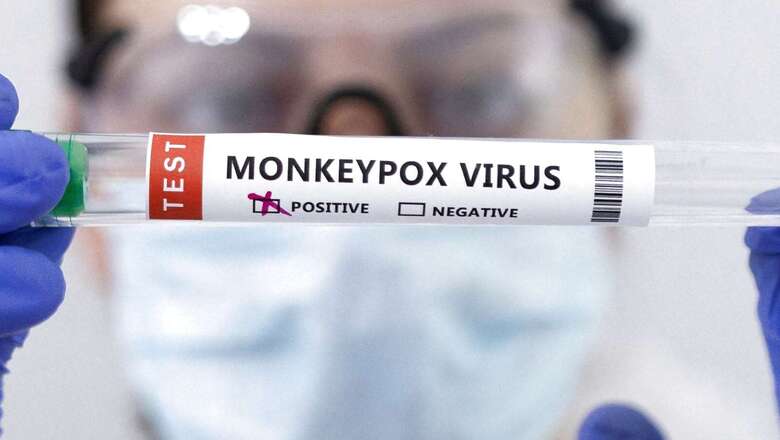
views
A 22-year-old African woman, who had travelled to Nigeria a month ago, tested positive for monkeypox in Delhi, taking the city’s tally to 5. She was admitted to LNJP Hospital two days ago and her reports came out on Friday night, confirming that she was positive.
She is the second woman in the national capital to contract the infection. Four persons, including two women, are admitted to the LNJP Hospital with monkeypox while one patient was discharged from the facility.
In a statement, the health department also said instructions have been issued to all government and private hospitals to notify all suspected cases of monkeypox according to the case definition and refer them to designated hospitals for isolation and management, in coordination with district surveillance units.
The Delhi government is “maintaining a close watch over the evolving situation”, the statement said, according to news agency PTI.
“The monkeypox situation is being continuously monitored in Delhi. There is no need to panic. As of now, five confirmed cases of monkeypox have been reported in Delhi; and one has recovered and been discharged,” it said, adding there is “no need to panic”.
Delhi government has taken several measures as part of its preparedness and beds, rooms for admission of suspected or confirmed cases of monkeypox have already been reserved in three government and as many private hospitals, officials said.
Last week, the Centre held a meeting of top health experts on the need for revisiting existing guidelines on the management of monkeypox amid the rising number of cases of the disease in the country.
Monkeypox: Health Ministry Releases Dos and Don’ts to Prevent Spread
Monkeypox typically manifests itself with fever, rash and swollen lymph nodes and may lead to a range of medical complications. It is usually a self-limited disease with symptoms lasting for two to four weeks. International passengers have been asked to avoid contact with dead or live wild animals such as small mammals including rodents like rats and squirrels and non-human primates like monkeys and apes.
EXPLAINED: Can the Spread of Monkeypox Be Stopped?
According to existing ‘Guidelines on Management of Monkeypox Disease’ issued by the Centre, any person having a history of travel to affected countries within the last 21 days presenting with an unexplained acute rash and symptoms like swollen lymph nodes, fever, headaches, body aches and profound weakness is to be considered to be a ‘suspected case’.
A ‘probable case’ has to be a person meeting the case definition for a suspected case, clinically compatible illness and has an epidemiological link like face-to-face exposure, including health care workers without appropriate PPE, direct physical contact with skin or skin lesions, including sexual contact, or contact with contaminated material such as clothing, bedding or utensils.
(With PTI inputs)
Read the Latest News and Breaking News here















Comments
0 comment